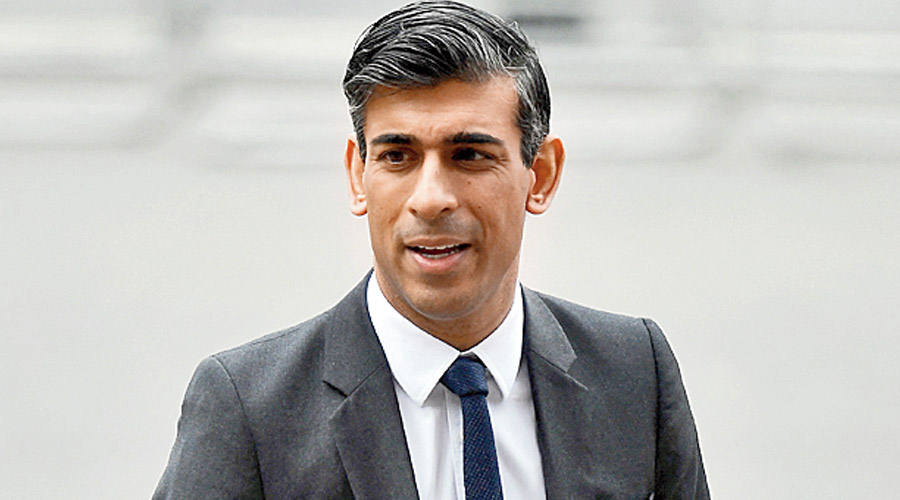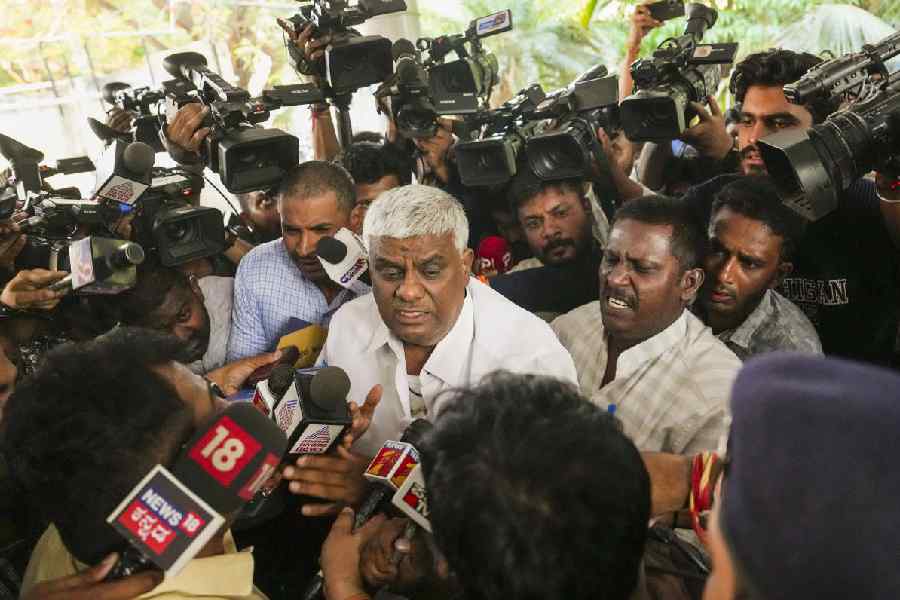Muddy waters
The chancellor of the exchequer, Rishi Sunak, is discovering that sometimes there is only one thing worse than being unsuccessful: being successful. The manner in which he has been targeted over the Infosys shares held by his wife, Akshata Murty, is outrageous. But when it comes to Tory leadership battles, politics can get very nasty. The charge against Sunak is that since Infosys retains an office in Moscow, he is somehow benefiting from doing business indirectly with Vladimir Putin. The Mirror pointed out that Sunak’s father-in-law, NR Narayana Murthy, “is a high-profile supporter of Indian Prime Minister Narendra Modi, who has refused to impose sanctions on Russia despite the bloodshed in Ukraine”. The paper quoted Richard Murphy, professor of Accounting Practice at Sheffield University Management School, didn’t think Sunak was “able to form an uninfluenced opinion about what is best for this country, independent of Russia’s influence on his family’s fortune...”
Analysis in the Daily Mail “found that over the past year, Infosys made two dividend payments that would have netted Ms Murty around £11.7 million through her 0.93 per cent holding in the company”. Sky TV questioned Sunak about his wife’s stake in Infosys and implied the chancellor was being hypocritical because he had urged British firms “to think very carefully about their investments in Russia and how they may aid the Putin regime”. Sunak replied: “I’m an elected politician and I’m here to talk to you about what I’m responsible for. My wife is not.”
On the BBC, Sunak jokingly referred to the Oscars drama: “Both Will Smith and me having our wives attacked — at least I didn’t get up and slap anybody, which is good.” He added that “it’s very upsetting and, I think, wrong for people to try and come at my wife and... with regard to my father-in-law... I have nothing but enormous pride and admiration for everything that he’s achieved.”
Clear stand
The Russian culture wars began long before the country invaded Ukraine. At Moscow airport I had once collected — and still have — English translations of Anton Chekhov and other Russian authors, which were being given away for free. But President Vladimir Putin received a rebuff from JK Rowling
recently when he tried to ingratiate himself with her by saying that the West was trying to cancel Russian culture, just as it had also “cancelled JK Rowling… all because she didn’t satisfy the demands of (trans) gender rights”.
This did not go down well with the author of the famous children’s books. The Harry Potter author responded by tweeting: “Critiques of Western cancel culture are possibly not best made by those currently slaughtering civilians for the crime of resistance, or who jail and poison their critics.” She even added an “I Stand With Ukraine” hashtag for good measure.
Positive change
Netflix has ushered in a revolution by casting two Asian actresses in lead roles in Bridgerton, a period drama set in Regency-era England. Simone Ashley (who has anglicized her name from Simone Ashwini Pillai), 27, and Charithra Chandran, 25, play sisters, Kate and Edwina Sharma, newly-arrived from India. Both actresses were born in Britain to Tamilian parents from Sri Lanka and India respectively. Ashley quipped: “Hey, a message to all dark-skinned desi girls, put down that fairness cream, you don’t need it.” Four years ago I went to Oxford to see Chandran impress in the lead role in an undergraduate production of Medea, Euripides’s Greek tragedy first performed in 431 BC. It was staged in Keble College, Imran Khan’s alma mater.
Period drama in England is the exclusive preserve of white actors on the grounds of “authenticity”. But Bridgerton, with its culturally diverse casting, is Netflix’s most popular drama. The first series was streamed into 82 million households globally. Bridgerton’s American executive producer, Shonda Lynn Rhimes, herself a Black woman, declared: “Making the Sharmas of South Asian descent was actually a very simple choice... Finding... South Asian women with darker skin and making sure that they were represented onscreen... [is] something... we haven’t seen... enough of. I felt like it was time... to make sure that we were seeing that as much as possible.”
Chilling story
Honor by Thrity Umrigar, who emigrated to America from Mumbai at 21, tells the story of Smita Agarwal, an Indian-American journalist who reports on the harrowing case of a village woman, Meena, whose husband, Abdul, is burnt alive by her brothers. The author says her novel “was inspired by the news articles about India written by Ellen Barry for the New York Times. The characters and events in the book are fictional, but I have borrowed a few ideas about the treatment of women in rural India from her articles.”
Footnote
Tulip Siddiq, the Labour MP for Hampstead and Kilburn, has rightly received widespread praise for campaigning successfully for the release of her constituent, Nazanin Zaghari-Ratcliffe, a British-Iranian woman who was held for six years in Iran on trumped up spying charges. In the Commons, the foreign secretary, Liz Truss, commended “the honourable lady for her tireless campaigning”. Siddiq’s mother, Sheikh Rehana, is the younger sister of Sheikh Hasina Wajed, the Bangladeshi prime minister.










